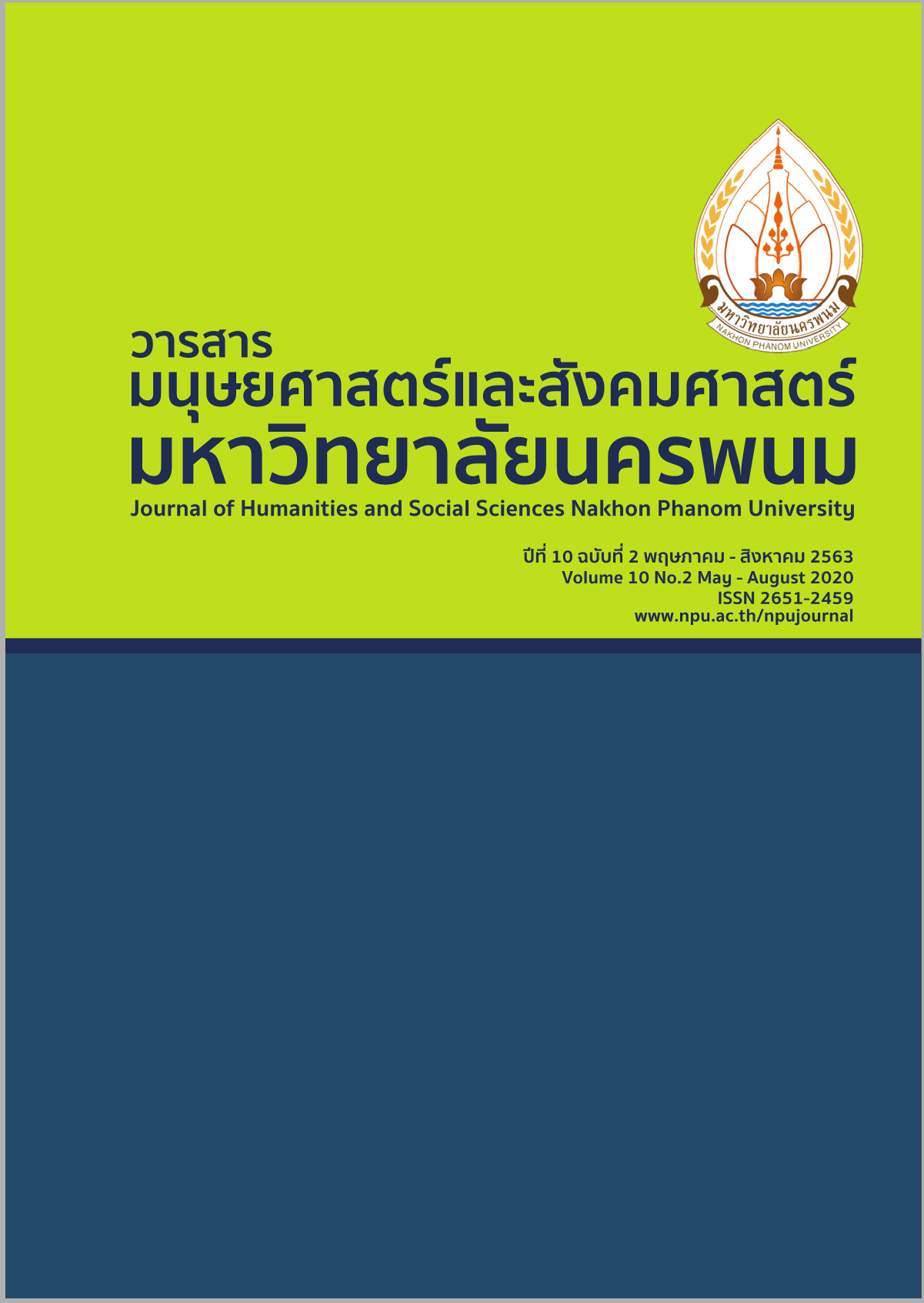A Study of Metacognitive Regulation of Sport Science Students in the Basic Chemistry Laboratory
Main Article Content
Abstract
This study aimed to investigate 1) the metacognitive regulation, 2) the relationship of metacognitive levels and test scores, and 3) students’ background that might interfere with the regulation of metacognition in sports science students. The population is 64 freshmen enrolled in the basic chemistry laboratory during the topic of chemical equilibrium. The research instrument was a metacognitive survey with 4 rating scales including 3 areas of metacognitive regulation: planning, monitoring, and evaluating with the validity score of 0.80-0.88. The survey data were evaluated with students’ behaviors via classroom observation and test scores using one-wat ANOVA and factorial ANOVA analysis.
The results revealed that 1) most students displayed decent metacognitive planning. However, they largely failed to successfully apply their plans, which was agreed with their impaired metacognitive monitoring and evaluating. 2) The majority of the students demonstrated overconfidence in their ability and judgment. Nonetheless, the one-way ANOVA test showed that the level of self-evaluation and the exam scores were not statistically correlated. 3) The test scores were significantly different with the students’ high school backgrounds including educational plans and admission. This finding suggested that metacognitive prompt about self-monitoring and -evaluating along with a preparatory course would improve the learning outcome of sport science students in a chemistry laboratory class.
Article Details
References
Alemdag, S. (2018). The Role of Social Self-Efficacy on Physical Activity: A Cross-Cultural Comparison. Journal of Education and Training Studies. 6(5), 40-46
Bransford, J. D., Brown, A. L., & Cocking, R. R. (2000). How People Learn: Brain, Mind, Experience, and School. Washington DC: National Academy Press.
Callan, G.L. & Cleary, T.J. Metacognition Learning (2019) 14: 43. https://doi.org/10.1007/s11409-019- 09191-x
Flavell, J. H., Miller, P. H., & Miller, S. A. (2002). Cognitive development (4th ed.). Upper Saddle River, NJ: Prentice Hall.
Graham, K. J., Bohn-Gettler, C. M. and Raigoza, A. F. (2019) Metacognitive Training in Chemistry Tutor Sessions Increases First Year Students’ Self-Efficacy. Journal of Chemical Education. 96 (8), 1539- 1547
Kruger, J., Dunning, D. (1999). Unskilled and Unaware of It: How Difficulties in Recognizing One's Own Incompetence Lead to Inflated Self-Assessments. Journal of Personality and Social Psychology. 77 (6), 1121–1134.
Landis, J. R. & Koch, G. G. (1977) The measurement of observer agreement for categorical data. Biometrics. 33, 159–174
Mathabathe, C.K. & Potgieter, M. (2017). Manifestations of metacognitive activity during the collaborative planning of chemistry practical investigations. International Journal of Science Education. DOI: 10.1080/09500693.2017.1336808
Rhodes, M. G. (2019). Metacognition. Teaching of Psychology, 46(2), 168–175.
Sánchez, C.C., & Dunning, D.B. (2018). Overconfidence among beginners: Is a little learning a dangerous thing? Journal of personality and social psychology. 114 (1), 10-28.
Veenman, M. V. J. (2011). Learning to self-monitor and self-regulate. In R. E. Mayer & P. A. Alexander (Eds.), Handbook of research on learning and instruction (pp. 197–218). New York, NY: Routledge


